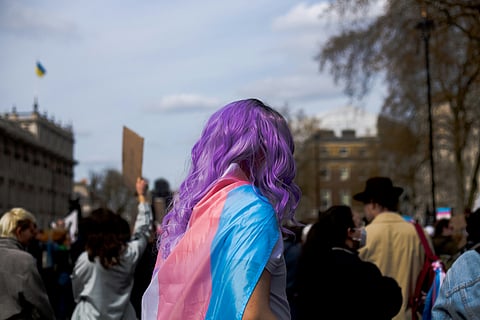

The United States Supreme Court has temporarily allowed the Trump administration to enforce a policy mandating that passports list an individual's biological sex at birth, halting a lower court order that had blocked the change.
This decision, issued on Thursday by the conservative-majority court, freezes a Massachusetts federal judge's ruling while the underlying lawsuit proceeds.
The unsigned order from the court stated that displaying passport holders' sex at birth no more offends equal protection principles than displaying their country of birth.
It further noted that the government is merely attesting to a historical fact without subjecting anyone to differential treatment.
The three liberal justices dissented, with Justice Ketanji Brown Jackson writing that the decision represents a senseless sidestepping of the obvious equitable outcome.
The policy stems from an executive order signed by President Trump on his first day in office, recognizing only two sexes — male and female — based on biological classification at birth.
This reversed changes under the Biden administration, which had permitted self-selection of gender markers, including an "X" option for non-binary individuals, without requiring medical documentation.
Prior to these shifts, the State Department had allowed sex designations to differ from birth records with medical proof since 1992.
In April, U.S. District Judge Julia Kobick in Boston ruled that the Trump policy likely discriminated based on sex and violated equal protection rights under the Fifth Amendment.
She described it as rooted in irrational prejudice toward transgender Americans.
Judge Kobick issued an injunction in June blocking enforcement, a decision upheld by the First Circuit Court of Appeals.
The administration appealed to the Supreme Court, arguing that the president holds authority over passports as part of foreign affairs powers.
Solicitor General D. John Sauer contended that allowing self-identification would undermine accurate identification.
The ruling means that new and renewed passports will now reflect only male or female designations based on birth sex, affecting transgender and non-binary applicants.
Plaintiffs in the case, including transgender individuals like Ashton Orr, argued that such markers could lead to harassment, violence, or unsafe travel conditions.
Attorneys for the challengers stated that the policy deprives plaintiffs of a usable identification document.
Attorney General Pam Bondi celebrated the decision on X, saying it allows the government to require citizens to list their biological sex on passports.
This marks the latest victory for the Trump administration on the Supreme Court's emergency docket, the 22nd such grant according to records.
The court indicated it is likely to uphold the policy on the merits when fully briefed.
Justice Jackson, in her dissent, criticized the lack of justification for immediate enforcement, noting no evidence of harm to the government from delay.